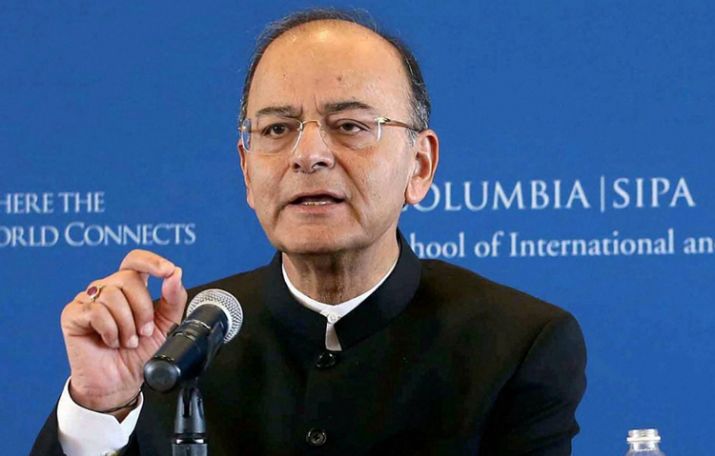NEW DELHI: Terming the present system of cash donations to political parties as ”a wholly non-transparent system”, Finance Minister Arun Jaitley on Sunday said the electoral bond scheme, placed by him before the Parliament in the winter session, would lend substantial transparency in system of political funding.
”I do believe that donations made online or through cheques remain an ideal method of donating to political parties. However, these have not become very popular in India since they involve disclosure of donor’s identity.
However, the electoral bond scheme, which I placed before the Parliament a few days ago, envisages total clean money and substantial transparency coming into the system of political funding,” he said.
Under the scheme, he said ”A donor can purchase electoral bonds from a specified bank only by a banking instrument. He would have to disclose in his accounts the amount of political bonds that he has purchased.”
The life of the bond would be only 15 days. A bond can only be encashed in a pre-declared account of a political party. Every political party in its returns will have to disclose the amount of donations it has received through electoral bonds to the Election Commission.
The entire transactions would be through banking instruments. As against a total non-transparency in the present system of cash donations where the donor, the quantum of donations and the nature of expenditure are all undisclosed, some element of transparency would be introduced in as much as all donors declare in their accounts the amount of bonds that they have purchased and all parties declare the quantum of bonds that they have received,”Mr Jaitley said in a blog.
Mr Jaitley said that despite strengthening various institutions for the last seven decades, India, the largest democracy in the world, had not been able to evolve a transparent political funding system.
”The conventional system of political funding is to rely on donations. These donations, big or small, come from a range of sources from political workers, sympathisers, small business people and even large industrialists.
The conventional practice of funding the political system was to take donations in cash and undertake these expenditures in cash. The sources are anonymous or pseudonymous.
The quantum of money was never disclosed. The present system ensures unclean money coming from unidentifiable sources. It is a wholly non-transparent system.
Most political groups seem fairly satisfied with the present arrangement and would not mind this status-quo to continue. The effort, therefore, is to run down any alternative system which is devised to cleanse up the political funding mechanism,”Mr Jaitley said.
Mr Jaitley said that despite an amendment in the Income Tax Act , during the Aral bihari Vajpayee government, to include a provision that donations made to political parties would be treated as expenditure and would thus give a tax advantage to the donor, and further amendments during the UPA Government,, these reforms taken together resulted in only a small fraction of the donations coming in form of cheques.
”A major step was taken during the first NDA Government led by Mr Atal Bihari Vajpayee. The Income Tax Act was amended to include a provision that donations made to political parties would be treated as expenditure and would thus give a tax advantage to the donor.
If the political party disclosed its donations in a prescribed manner, it would also not be liable to pay any tax. A political party was expected to file its returns both with the income-tax authorities and Election Commission. It was hoped that donors would increasingly start donating money by cheque,” he said.
”Some donors did start following this practise but most of them were reluctant to disclose the details of the quantum of donation given to a political party. This was because they feared consequences visiting them from political opponents. The law was further amended during the UPA Government to provide for “pass through” electoral trust so that the donors would park their money with the electoral trusts which in turn would distribute the same to various political parties.
Both these reforms taken together resulted in only a small fraction of the donations coming in form of cheques,” Mr Jaitley said.
Mr Jaitley said that .In order to make a serious effort to carry forward this reform process, he had announced in his Budget Speech for the year 2017-18 that the existing system would be substantially widened and donations of clean money could be made to political parties in several ways.
”A donor could enjoy a tax deduction by donating in cheque. Donors were also free to donate moneys online to political parties. A cash donation to a political party could not exceed an amount of Rs.2000/-. In addition, a scheme of electoral bonds was announced to enable clean money and substantial transparency being brought into the system of political funding,”he said.
Expressing the government’s willingness to consider all suggestions to further strengthen the cleansing of political funding in India, Mr jaitley said, ”It has to be borne in mind that impractical suggestions will not improve the cash denominated system. They would only consolidate it.”
(AGENCIES)
Home Latest News Electoral bonds would lend substantial transparency in system of political funding: Jaitley


